Emergency Preparedness - The Role of Millennials
In today's fast-paced world, the importance of emergency preparedness cannot be overstated. Disasters can strike at any moment, whether they are natural calamities like hurricanes and earthquakes or man-made crises such as cyber-attacks and pandemics. Millennials, those born between 1981 and 1996, are uniquely positioned to enhance emergency preparedness efforts. With their inherent skills, familiarity with technology, and strong sense of community, they are not just passive recipients of information but active participants in creating solutions that can save lives and mitigate damage during emergencies.
Millennials bring a fresh perspective to the table. They are often labeled as the tech-savvy generation, having grown up in a digital age where information is at their fingertips. This fluency in technology allows them to utilize various tools and platforms to communicate effectively during crises. Imagine a world where a disaster strikes, and instead of panic, millennials are mobilizing resources, sharing critical information, and coordinating community responses—all through their smartphones and social media channels. This is not just a dream; it is a reality that is becoming increasingly possible thanks to their innovative approaches.
Moreover, their commitment to community engagement sets them apart. Millennials understand that preparedness is not just an individual effort but a collective responsibility. They actively participate in community-driven initiatives, fostering networks that enhance emergency response capabilities. When they come together, they create a robust support system that can withstand the pressures of a crisis. This article will delve deeper into how millennials are shaping the future of emergency preparedness through their unique skills and perspectives, ensuring that we are all better equipped to face whatever challenges lie ahead.

The Importance of Emergency Preparedness
This article explores how millennials are uniquely positioned to enhance emergency preparedness efforts, emphasizing their skills, technology use, and community engagement in addressing potential crises.
Understanding the significance of emergency preparedness is crucial for mitigating risks and ensuring safety during disasters. Imagine waking up one day to find your community facing a natural disaster, like a hurricane or earthquake. The chaos that ensues can be overwhelming, but those who are prepared can navigate through it with greater ease. Being prepared means having a plan in place, knowing what to do, and having the right supplies at hand. This proactive approach can not only save lives but also reduce the damage to property and infrastructure.
When we talk about emergency preparedness, it’s about more than just having a first aid kit or knowing how to evacuate. It encompasses a wide range of actions and strategies that individuals and communities can adopt. For instance, having a communication plan that keeps families connected during a crisis can make all the difference. Furthermore, being informed about the potential risks in your area—such as floods, fires, or severe weather—enables individuals to take necessary precautions.
Statistics show that communities with strong emergency preparedness plans tend to recover faster from disasters. According to a recent study, communities that engage in preparedness training can reduce the impact of disasters by up to 50%. This highlights the importance of not just individual preparedness but also community-wide initiatives. Here are some key benefits of being prepared:
- Increased Safety: Prepared individuals know how to react in emergencies, which can prevent injuries and save lives.
- Resource Management: Effective preparedness helps manage resources efficiently, ensuring that aid reaches those who need it most.
- Community Resilience: Prepared communities can support each other better, leading to quicker recovery times.
Moreover, preparedness fosters a sense of confidence within individuals and communities. When people feel equipped to handle emergencies, they are less likely to panic and more likely to assist others. This sense of unity can be incredibly empowering. In a world where disasters seem increasingly frequent, being prepared is not just an option; it’s a necessity. As we delve deeper into how millennials can play a pivotal role in enhancing emergency preparedness, it’s essential to recognize that their unique skills and perspectives can lead to innovative solutions and stronger community bonds.
Millennials are digital natives, adept at using technology for communication and information sharing. This section examines how their tech-savvy nature can improve emergency preparedness strategies and response times.
Social media platforms serve as powerful tools for disseminating information during emergencies. This subsection explores how millennials leverage social media to spread awareness and coordinate community responses.
The ability to provide real-time updates during crises can significantly influence public safety. This segment discusses how millennials utilize apps and platforms for timely communication.
Millennials often engage in community-driven initiatives. This section highlights how their involvement fosters stronger networks for emergency preparedness and response.
Millennials are known for their creativity and innovation. This subsection discusses how they develop new solutions for emergency preparedness, including apps and community programs that address specific needs.
Education plays a vital role in preparing individuals for emergencies. This section discusses the importance of training programs tailored for millennials to enhance their preparedness skills.
Participatory workshops and seminars can equip millennials with necessary skills. This subsection explores various educational opportunities that focus on emergency response and preparedness.
The availability of online resources allows millennials to learn at their own pace. This section highlights useful websites and platforms offering valuable information on emergency preparedness.
Looking ahead, this section discusses the evolving role of millennials in emergency preparedness and how their unique perspectives can shape future strategies and policies.
Q: Why is emergency preparedness important?
A: Emergency preparedness is crucial as it helps save lives, reduce injuries, and minimize property damage during disasters.
Q: How can millennials contribute to emergency preparedness?
A: Millennials can leverage technology, engage their communities, and develop innovative solutions to enhance preparedness efforts.
Q: What are some essential items to include in an emergency kit?
A: An emergency kit should include water, non-perishable food, a flashlight, batteries, a first aid kit, and important documents.
Q: How can social media be used in emergencies?
A: Social media can be used to disseminate real-time information, coordinate community responses, and raise awareness about safety measures.
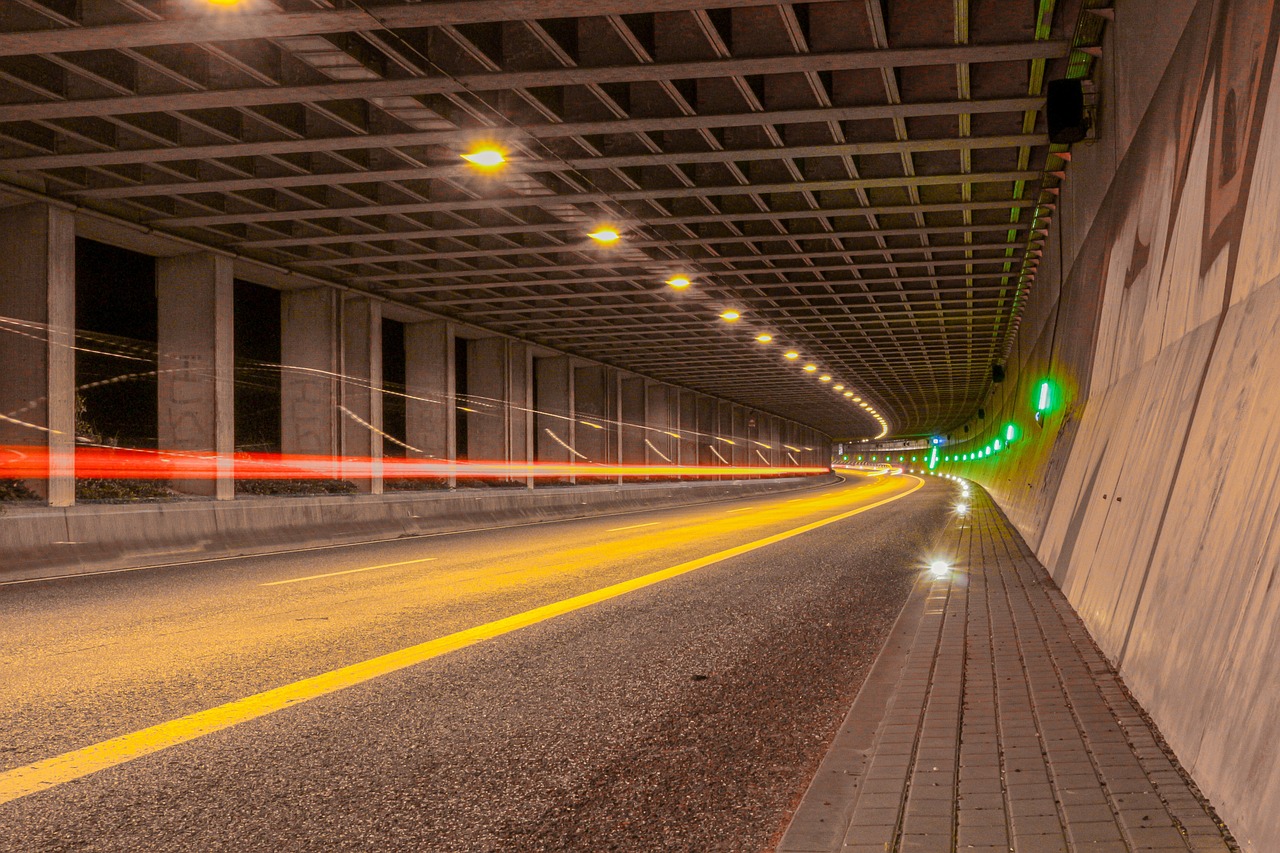
Millennials and Technology
When we think about millennials, the first thing that often comes to mind is their unparalleled relationship with technology. This generation, born roughly between 1981 and 1996, has grown up in a world dominated by rapid technological advancements. They are not just users of technology; they are digital natives who have seamlessly integrated tech into their daily lives. This unique position enables them to enhance emergency preparedness efforts in ways that previous generations could only dream of.
One of the most significant advantages millennials bring to the table is their ability to leverage technology for effective communication. In times of crisis, clear and rapid communication is crucial. Millennials are adept at using various platforms to spread information quickly. For instance, they utilize messaging apps, social media, and websites to share updates and coordinate responses during emergencies. Imagine a scenario where a natural disaster strikes—millennials can mobilize their networks, sharing critical information in real-time and ensuring that their communities remain informed and safe.
Moreover, the impact of social media cannot be overstated. Platforms like Twitter, Facebook, and Instagram have become essential tools for disseminating information during emergencies. Millennials are particularly skilled at using these platforms to raise awareness and foster community engagement. They can create hashtags that rally support, share safety tips, and even organize volunteer efforts. This ability to connect and mobilize people quickly can make a substantial difference in how communities respond to crises.
In today’s fast-paced world, the need for real-time updates during emergencies is more critical than ever. Millennials have a knack for utilizing apps and platforms that facilitate instant communication. Whether it’s through emergency alert systems, community group chats, or specialized apps designed for crisis management, millennials ensure that information flows swiftly. This capability not only keeps people informed but also empowers them to take action—whether it’s evacuating a building or providing assistance to those in need.
Beyond their tech-savvy nature, millennials are deeply committed to community engagement. They often participate in local initiatives and volunteer programs that focus on emergency preparedness. By fostering stronger networks, they enhance the overall resilience of their communities. For example, millennials might organize community workshops that teach essential skills, such as first aid or disaster response. This collaborative spirit not only prepares individuals for emergencies but also strengthens the bonds within the community.
In summary, millennials are uniquely positioned to revolutionize emergency preparedness through their adept use of technology. Their ability to communicate effectively, engage with their communities, and provide real-time updates can significantly improve how we prepare for and respond to emergencies. As we look to the future, it’s clear that harnessing the skills of this generation will be pivotal in creating safer and more resilient communities.
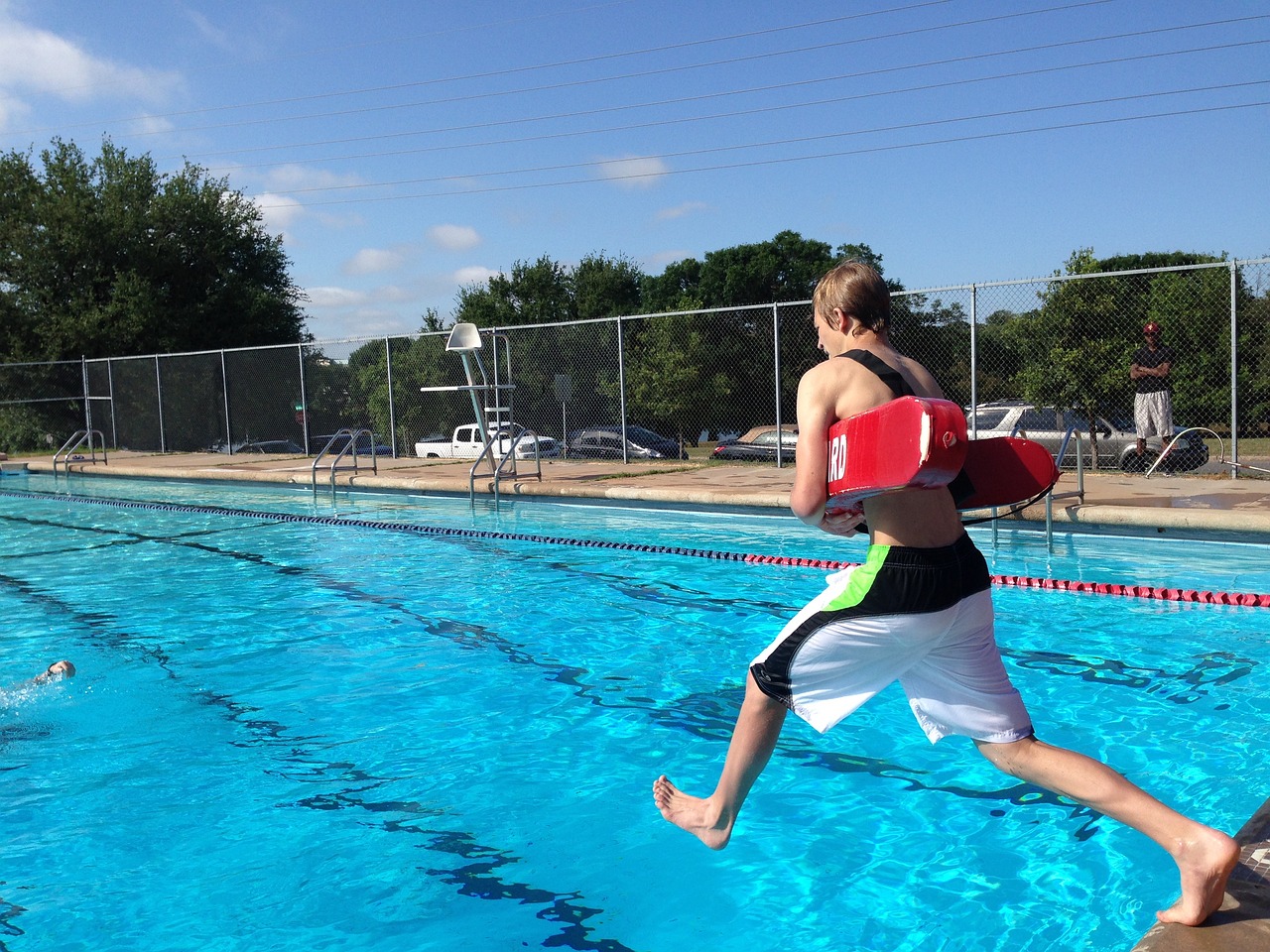
Social Media's Impact
In today's digital age, social media has become a lifeline during emergencies, and millennials are at the forefront of this revolution. Imagine a world where critical information flows faster than the speed of light, connecting individuals and communities in real-time. This is the reality that millennials have embraced, utilizing platforms like Twitter, Facebook, and Instagram to disseminate vital information during crises. Their ability to share updates, coordinate responses, and mobilize resources can make a significant difference in emergency situations.
One of the most powerful aspects of social media is its capacity for rapid information dissemination. When disasters strike, traditional media outlets may take time to report on the situation. However, millennials can instantly share firsthand accounts, images, and videos, providing real-time updates that inform and guide others. This immediacy not only enhances public awareness but also empowers individuals to make informed decisions in the face of danger. For instance, during natural disasters like hurricanes or wildfires, social media can serve as a platform for sharing evacuation routes, safety tips, and available resources.
Moreover, social media acts as a community-building tool, fostering connections among individuals who might otherwise feel isolated during emergencies. Through the use of hashtags and dedicated groups, millennials can create virtual support networks that facilitate collaboration and resource-sharing. These networks can be invaluable, as they allow people to coordinate volunteer efforts, share supplies, and provide emotional support during challenging times. The sense of community that emerges from these interactions can transform the daunting experience of a crisis into a collective effort to overcome adversity.
To illustrate the impact of social media on emergency preparedness, consider the following table that showcases how different platforms are utilized:
| Platform | Primary Use | Example |
|---|---|---|
| Real-time updates and alerts | Emergency services tweeting evacuation routes | |
| Community organizing and support | Local groups sharing resources and aid | |
| Visual storytelling and awareness | Images of affected areas to raise funds |
In essence, the impact of social media on emergency preparedness cannot be overstated. Millennials are not just passive consumers of information; they are active participants in shaping the narrative around crises. By harnessing the power of social media, they can amplify voices, spread awareness, and coordinate efforts that ultimately save lives. As we continue to navigate an increasingly unpredictable world, the role of social media in emergency preparedness will only grow more critical.
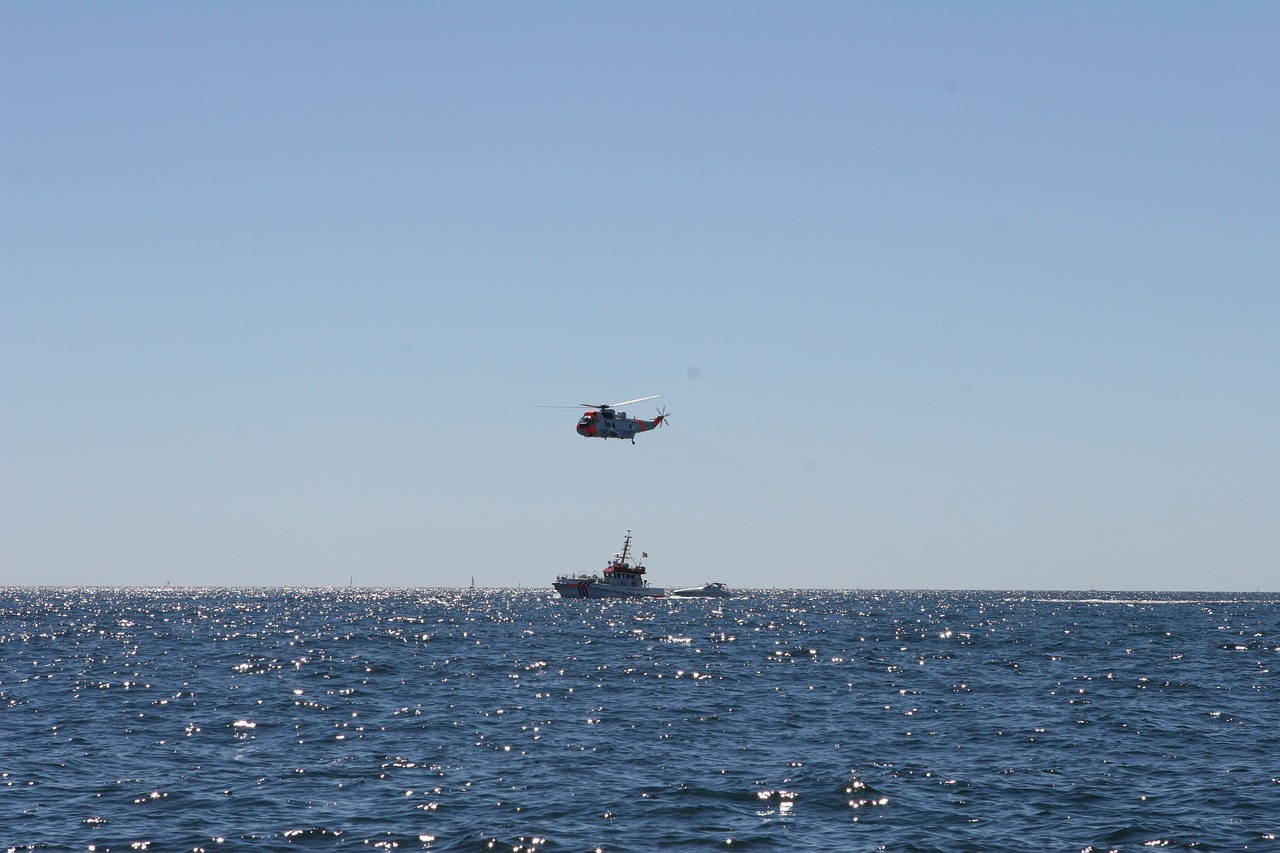
Real-Time Updates
In today's fast-paced world, the ability to provide during emergencies is nothing short of revolutionary. Imagine being in the midst of a natural disaster, with chaos unfolding around you. How do you stay informed? This is where millennials shine, utilizing their tech-savvy skills to transform the way information is disseminated. With just a few taps on their smartphones, they can access a wealth of information, ensuring that they and their communities are well-informed and prepared.
Millennials are adept at leveraging various apps and platforms to communicate vital information instantly. For instance, platforms like Twitter and Facebook have become lifelines during crises, allowing users to share updates, safety tips, and resources with just a few clicks. This rapid flow of information can significantly influence public safety and response times, enabling individuals to make informed decisions when every second counts.
Consider the power of a single tweet during an emergency. It can reach thousands of people in mere moments, spreading awareness about evacuation routes, shelter locations, and emergency services. This immediate access to information can mean the difference between safety and danger. Moreover, millennials often create and participate in community groups on social media, which can serve as a central hub for sharing real-time updates. These groups foster a sense of solidarity and collective action, proving that in times of crisis, community matters.
Furthermore, the integration of technology into emergency preparedness has led to the development of various apps designed specifically for crisis situations. These applications provide features like:
- Location Tracking: Helps users find safe routes and stay updated on danger zones.
- Alerts and Notifications: Sends real-time alerts about severe weather, local emergencies, or safety announcements.
- Resource Sharing: Connects individuals with nearby shelters, medical facilities, or aid organizations.
In essence, the ability to provide real-time updates has transformed the landscape of emergency preparedness. Millennials, with their innate understanding of technology and social media, are at the forefront of this change, ensuring that communities can respond effectively and efficiently during crises. Their innovative spirit and commitment to leveraging technology for the greater good not only enhance their own safety but also strengthen the resilience of the communities they inhabit.
Q1: How can I stay informed during an emergency?
A1: Utilize social media platforms and emergency apps that provide real-time updates. Follow local authorities and news outlets for the latest information.
Q2: What are some recommended apps for emergency preparedness?
A2: Some popular apps include FEMA, Red Cross Emergency, and local weather alert apps that provide notifications and resources during emergencies.
Q3: How can I contribute to my community's emergency preparedness?
A3: Engage in community groups on social media, participate in local preparedness workshops, and share resources and information with your neighbors.

Community Engagement
When it comes to emergency preparedness, is like the glue that holds everything together. Imagine a neighborhood that operates like a well-oiled machine during a crisis; that’s what millennials are striving to create. Their ability to connect with others and foster relationships makes them uniquely positioned to enhance community resilience in the face of disasters. Millennials understand that emergencies don’t just affect individuals; they impact entire communities. By engaging with their neighbors, they can build a support network that not only prepares them for potential crises but also strengthens social bonds.
One of the most effective ways millennials engage with their communities is through volunteering. Whether it's organizing local disaster response drills or participating in community clean-up events, their hands-on involvement creates a culture of preparedness. Moreover, millennials are adept at using technology to facilitate these engagements. For instance, they often utilize social media platforms to rally volunteers, share important resources, and disseminate information about local preparedness initiatives. This tech-savvy approach not only brings people together but also ensures that crucial information reaches those who need it most.
Furthermore, millennials often take the initiative to host community meetings and workshops focused on emergency preparedness. These gatherings serve as platforms for sharing knowledge, discussing concerns, and brainstorming solutions. By creating an open dialogue, millennials can address specific needs within their communities, tailoring preparedness strategies to fit unique local challenges. For example, they might organize a workshop on how to create emergency kits or develop a neighborhood watch program to enhance safety.
In addition to traditional methods of engagement, millennials also leverage innovative technology to foster community involvement. Apps designed for neighborhood communication can help streamline the process of sharing information and coordinating efforts during emergencies. Imagine a scenario where a natural disaster strikes, and community members can instantly communicate through a dedicated app to share resources, report hazards, or even offer shelter. This kind of connectivity can be a game-changer in crisis situations.
Ultimately, the role of millennials in community engagement during emergencies is not just about being prepared; it's about creating a sense of unity and shared responsibility. By fostering a culture where everyone plays a part in readiness, they can significantly enhance their community’s resilience. As they continue to champion these efforts, we can expect to see a more connected and prepared society, ready to face whatever challenges may come their way.
- Why is community engagement important in emergency preparedness?
Community engagement fosters collaboration and ensures that resources are shared effectively, enhancing the overall resilience of the community during a crisis. - How can millennials use technology for community engagement?
Millennials can utilize social media, apps, and online platforms to organize events, share information, and connect with community members efficiently. - What types of activities can millennials participate in for emergency preparedness?
Activities can include volunteering for local disaster response teams, hosting workshops, and participating in community drills. - How can communities ensure everyone is involved in preparedness efforts?
By creating inclusive events and using accessible technology, communities can encourage participation from all demographics, fostering a collective sense of responsibility.
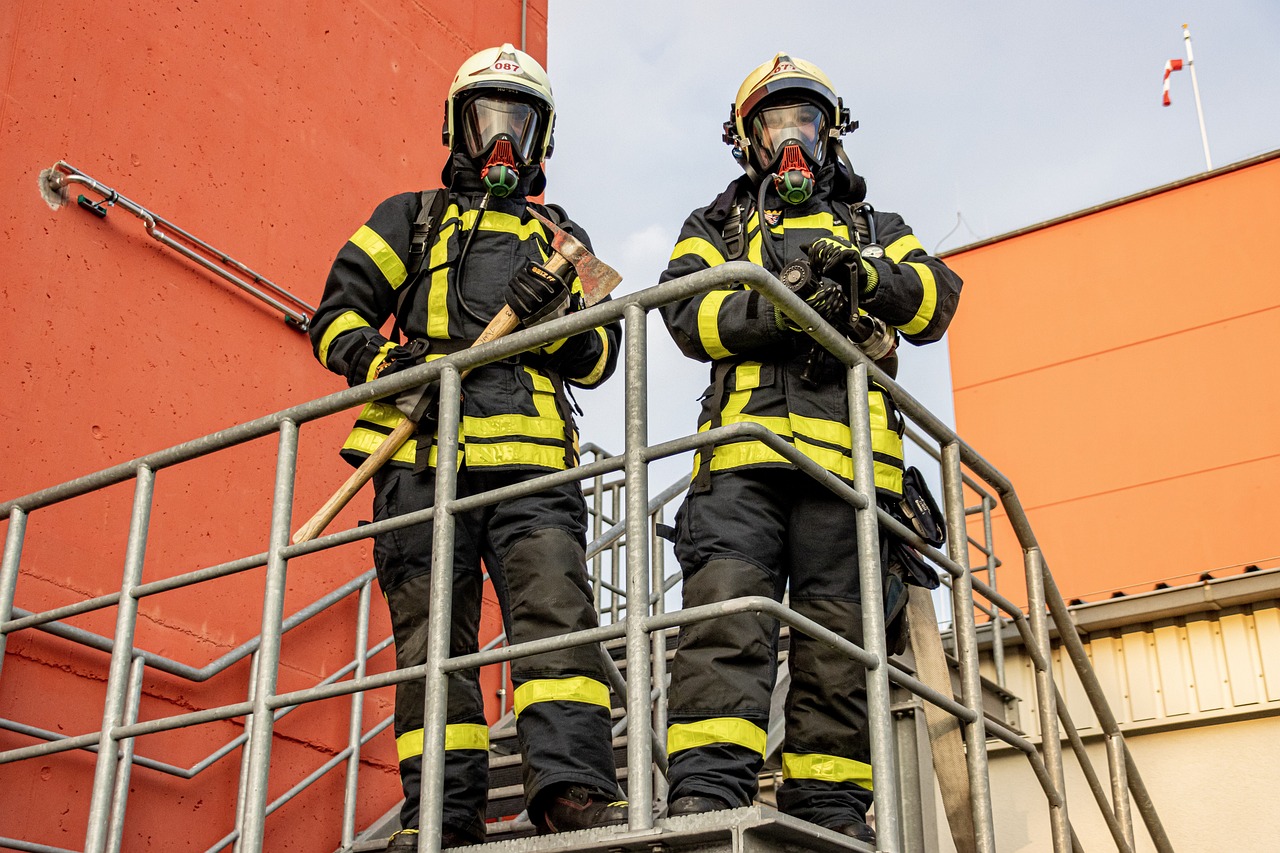
Innovative Solutions
When we think of emergency preparedness, it's easy to picture old-school methods like stockpiling canned goods and waiting for the storm to pass. However, millennials are bringing a fresh perspective that’s shaking up the traditional approach. With their knack for innovation, they are not just passive participants in emergency situations; they are actively crafting creative solutions that leverage technology and community resources to enhance preparedness.
One of the most exciting developments is the rise of mobile applications designed specifically for crisis management. These apps offer features such as real-time alerts, emergency checklists, and even community forums where users can share information and resources. Imagine receiving a notification on your phone about a nearby disaster, complete with tips on how to stay safe and where to find help. This is the kind of proactive approach millennials are championing.
Moreover, millennials are not just creating apps; they are also spearheading community-driven initiatives. For instance, many have organized local workshops that teach essential skills, such as first aid and disaster response. These workshops not only empower individuals but also foster a sense of community. When neighbors know how to respond in emergencies, it builds a stronger safety net for everyone involved. An example of this could be a neighborhood block party that doubles as a disaster preparedness drill, where people learn to work together in a fun yet informative setting.
Additionally, millennials are utilizing platforms like Kickstarter and GoFundMe to fund innovative projects that address specific emergency needs. For example, a group might launch a campaign to develop a portable water filtration system that can be easily distributed in disaster-stricken areas. This kind of initiative not only showcases their creativity but also demonstrates a commitment to making a tangible difference in crisis situations.
In summary, the innovative solutions brought forth by millennials are transforming the landscape of emergency preparedness. These solutions are not just about technology; they are about building community resilience and ensuring that everyone is equipped to handle unexpected challenges. By embracing creativity and collaboration, millennials are paving the way for a future where preparedness is not a burden but a shared responsibility.
- What types of apps are millennials creating for emergency preparedness? Millennials are developing apps that provide real-time alerts, emergency checklists, and community forums for information sharing.
- How are millennials engaging their communities in preparedness efforts? They are organizing workshops and local initiatives that teach essential skills and promote collaboration among neighbors.
- Can you give an example of a community-driven project? Many millennials use crowdfunding platforms to finance projects like portable water filtration systems for disaster relief.
- Why is community engagement important in emergency preparedness? Community engagement fosters stronger networks and ensures that individuals are better equipped to respond to emergencies together.
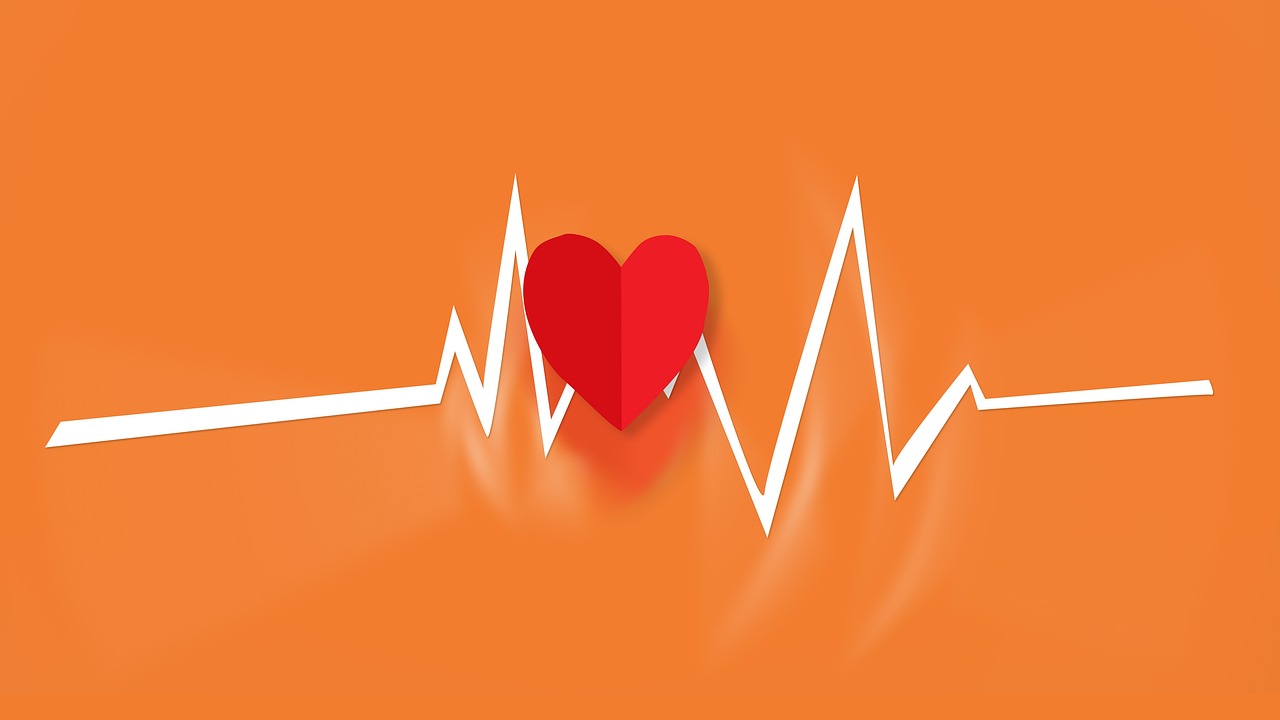
Education and Training
When it comes to emergency preparedness, education and training are absolutely essential. Think of it as building a solid foundation for a house; without that sturdy base, everything else is at risk of crumbling during a storm. For millennials, who are often juggling multiple responsibilities, tailored training programs can make a world of difference in enhancing their preparedness skills. The key is to create engaging and relevant content that resonates with their lifestyle and learning preferences.
Participatory workshops and seminars can be a game-changer. These hands-on experiences not only provide valuable skills but also foster a sense of community among participants. Imagine attending a workshop where you learn how to perform CPR or how to create an emergency kit from scratch. Not only do you walk away with practical knowledge, but you also connect with like-minded individuals who share your passion for preparedness. The camaraderie built in these settings can lead to ongoing support networks that are invaluable during actual emergencies.
Moreover, the digital landscape offers a plethora of online resources that millennials can tap into to enhance their knowledge at their own pace. Websites like FEMA, Ready.gov, and various local government sites provide comprehensive guides on emergency preparedness. These platforms often feature interactive content, such as quizzes and videos, that make learning both fun and informative. With just a few clicks, millennials can access a treasure trove of information that empowers them to take action in their communities.
In addition to formal training, informal learning can also play a significant role. Social media platforms and community forums are great places for millennials to share tips, strategies, and personal experiences related to emergency preparedness. This peer-to-peer exchange of knowledge can be incredibly effective, as it allows individuals to learn from real-life situations and apply that wisdom to their own preparedness plans.
To summarize, education and training are pivotal in shaping a generation that is not only aware of potential emergencies but is also equipped to handle them. By participating in workshops, leveraging online resources, and engaging with their communities, millennials can become proactive agents of change in the realm of emergency preparedness. It's about creating a culture of readiness that not only benefits them but also strengthens the fabric of society as a whole.
- Why is education important for emergency preparedness? Education equips individuals with the knowledge and skills needed to respond effectively during emergencies, potentially saving lives.
- What types of training programs are available for millennials? There are various programs, including workshops, online courses, and community seminars, tailored to meet the unique needs of millennials.
- How can millennials access online resources for emergency preparedness? Websites like FEMA and Ready.gov offer a wealth of information, including guides, videos, and interactive tools.
- Can social media be used for emergency preparedness? Absolutely! Social media platforms are powerful tools for sharing information, coordinating responses, and building community awareness.
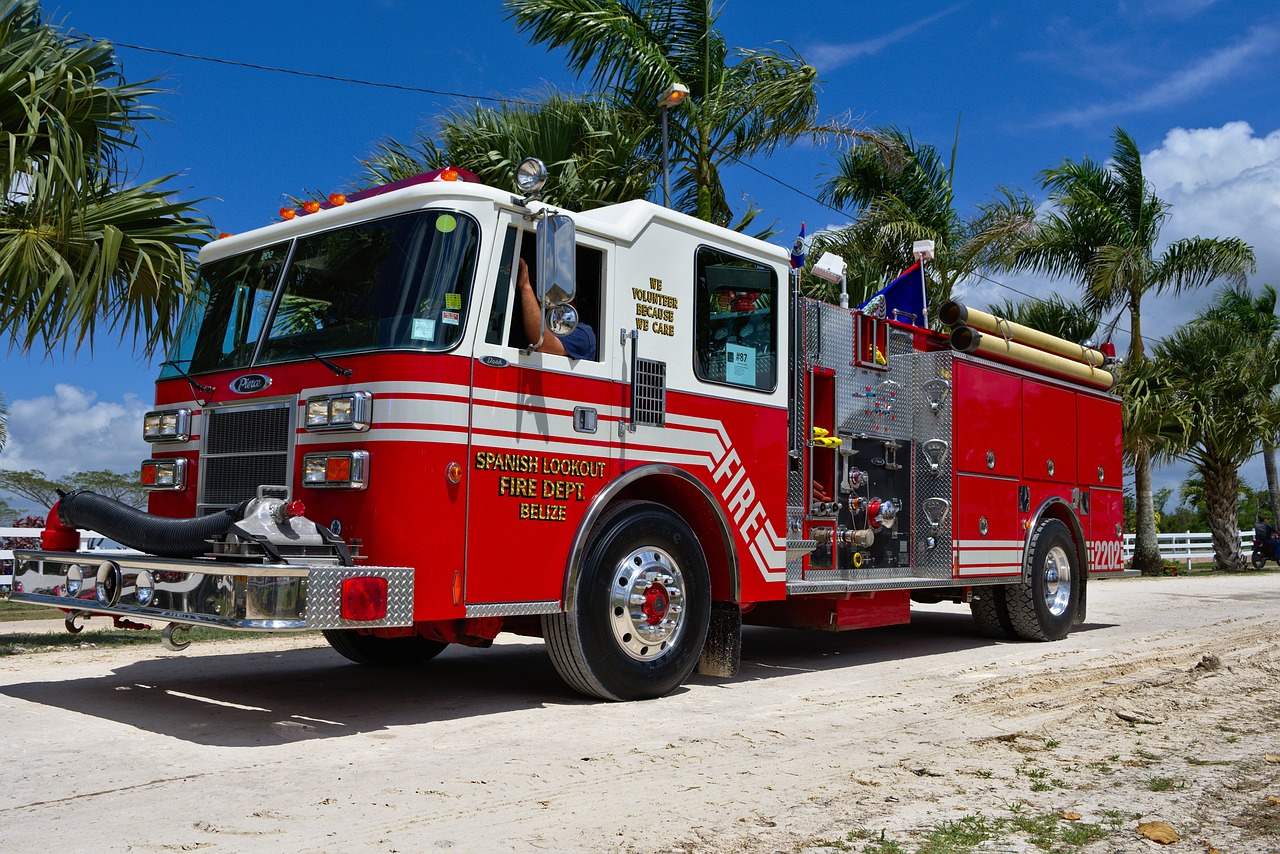
Workshops and Seminars
When it comes to emergency preparedness, play a crucial role in equipping millennials with the skills they need to respond effectively during crises. These interactive sessions provide a platform for hands-on learning, allowing participants to engage with experts and gain practical experience. Imagine walking into a room filled with passionate individuals, all eager to learn how to save lives and protect their communities. The energy is palpable, and the knowledge shared is invaluable.
Workshops often cover a variety of essential topics, such as first aid, disaster response strategies, and effective communication during emergencies. For instance, a workshop might include:
- Basic First Aid Training: Participants learn how to perform CPR, treat wounds, and manage other medical emergencies.
- Emergency Response Planning: Attendees develop skills to create personalized emergency plans for their families and communities.
- Communication Techniques: This includes how to effectively communicate during a crisis, both in person and through various media.
Furthermore, seminars often feature guest speakers from local emergency services, offering insights into real-world scenarios and the importance of preparedness. These experts share their experiences, highlighting the challenges faced during past emergencies and how proper training can make a difference. This direct interaction not only enhances learning but also fosters a sense of community and collaboration among participants.
Moreover, many organizations are now offering online workshops, making it easier for millennials to participate regardless of their location. These virtual sessions can be just as engaging as in-person ones, often utilizing breakout rooms for group discussions and simulations. The flexibility of online learning allows millennials to fit these important training sessions into their busy schedules, ensuring that they can still prioritize their safety and the safety of others.
In conclusion, workshops and seminars are more than just educational events; they are vital opportunities for millennials to become proactive members of their communities. By participating in these sessions, they not only gain essential skills but also inspire others to take emergency preparedness seriously. As the saying goes, "Knowledge is power," and when it comes to emergencies, that power can truly save lives.
Q: What types of workshops are available for emergency preparedness?
A: Workshops can range from first aid training to disaster response planning and effective communication techniques during emergencies.
Q: Are there online options for these workshops?
A: Yes! Many organizations now offer virtual workshops, making it convenient for participants to learn from anywhere.
Q: How can I find workshops in my area?
A: You can search online for local community centers, Red Cross chapters, or emergency management organizations that offer training sessions.
Q: Is there a cost associated with attending these workshops?
A: Costs can vary; some workshops may be free, while others might require a fee to cover materials and instruction.
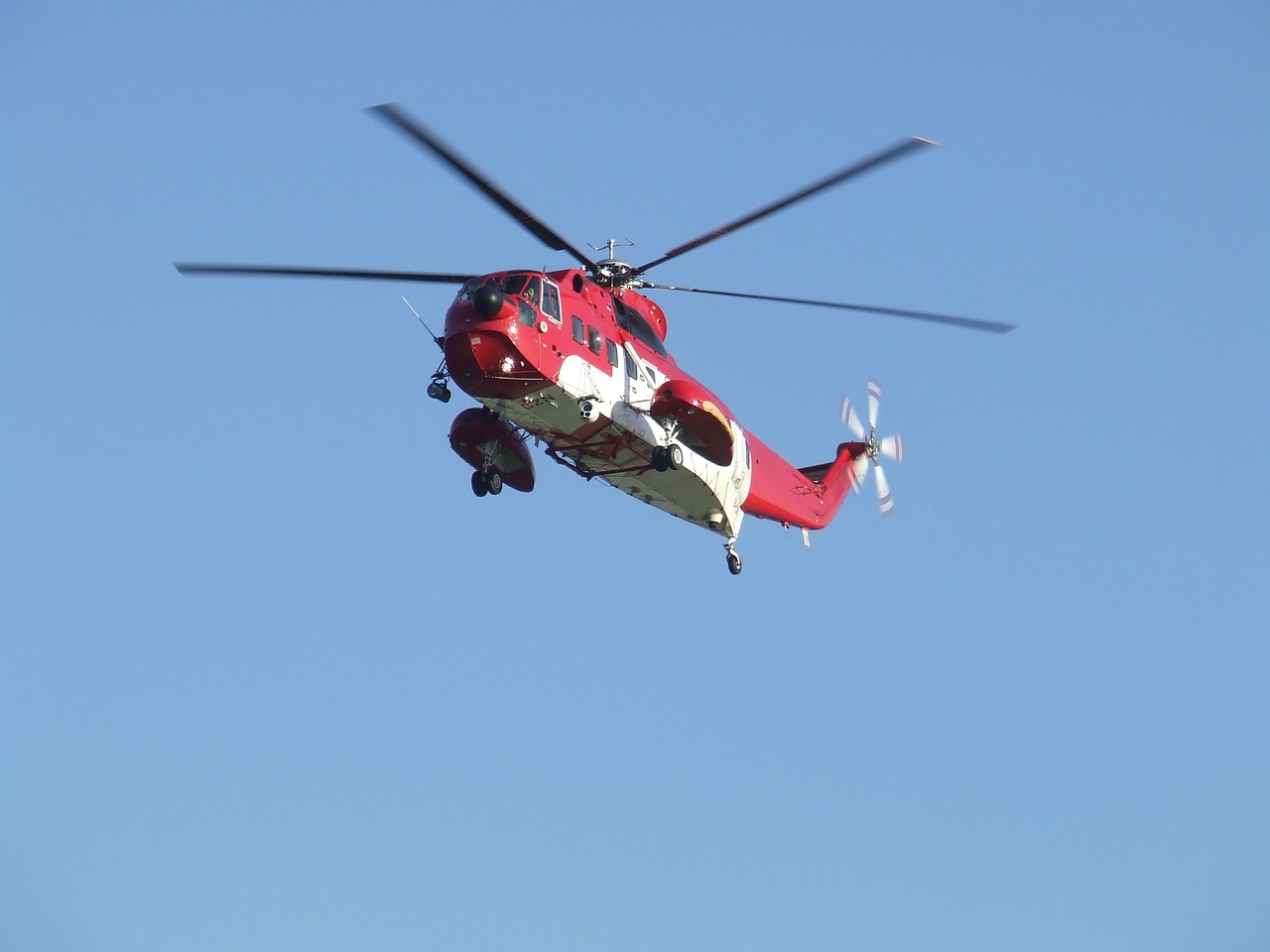
Online Resources
In today's fast-paced world, having access to the right information at the right time can make all the difference during an emergency. For millennials, the internet is a treasure trove of resources that can enhance their preparedness skills. With just a few clicks, they can tap into a plethora of online platforms that offer everything from emergency kits to first-aid training. But what exactly are these resources, and how can they be utilized effectively?
One of the most significant advantages of online resources is the ability to learn at one’s own pace. Websites like Ready.gov and FEMA provide comprehensive guides on how to prepare for various emergencies, including natural disasters, health crises, and even man-made threats. These platforms are designed to be user-friendly, ensuring that anyone, regardless of their tech-savviness, can navigate them easily. Moreover, they often feature interactive elements such as quizzes and checklists that make learning engaging and practical.
In addition to government resources, there are numerous nonprofit organizations that offer valuable information. For example, the American Red Cross has a wealth of online courses that teach essential skills such as CPR, first aid, and disaster preparedness. These courses are not only informative but also provide certifications that can boost one’s resume. Imagine being able to say you’re certified in first aid during a job interview—what a standout quality!
Furthermore, millennials can also benefit from community-driven platforms like Nextdoor and local Facebook groups. These platforms allow individuals to share experiences, tips, and resources specific to their neighborhoods. This is crucial because emergency situations can vary greatly depending on the geographical area. By connecting with local residents, millennials can learn about unique risks in their communities, such as flood zones or wildfire-prone areas, and how to prepare for them.
To make the most out of these online resources, it’s essential for millennials to stay proactive. Regularly visiting these sites, participating in online forums, and engaging with community discussions can keep them informed and ready. Additionally, they can create a personalized emergency preparedness plan by utilizing templates and checklists available on these platforms. This plan can include vital information such as emergency contacts, evacuation routes, and a list of necessary supplies.
In summary, the internet offers a wealth of online resources that can significantly enhance emergency preparedness for millennials. By leveraging these tools, they can equip themselves with the knowledge and skills needed to respond effectively during crises. The key is to remain engaged, informed, and ready to act when it matters most.
Q1: What are some reliable online resources for emergency preparedness?
A1: Some reliable online resources include Ready.gov, FEMA, and the American Red Cross. These platforms offer guides, courses, and checklists to help individuals prepare for various emergencies.
Q2: How can social media assist in emergency preparedness?
A2: Social media can be a powerful tool for disseminating information quickly. Millennials can use platforms like Twitter and Facebook to share real-time updates and connect with local community groups focused on emergency response.
Q3: Are there any online courses available for learning emergency response skills?
A3: Yes, many organizations, including the American Red Cross, offer online courses that teach essential skills such as CPR and first aid, which can be invaluable during emergencies.
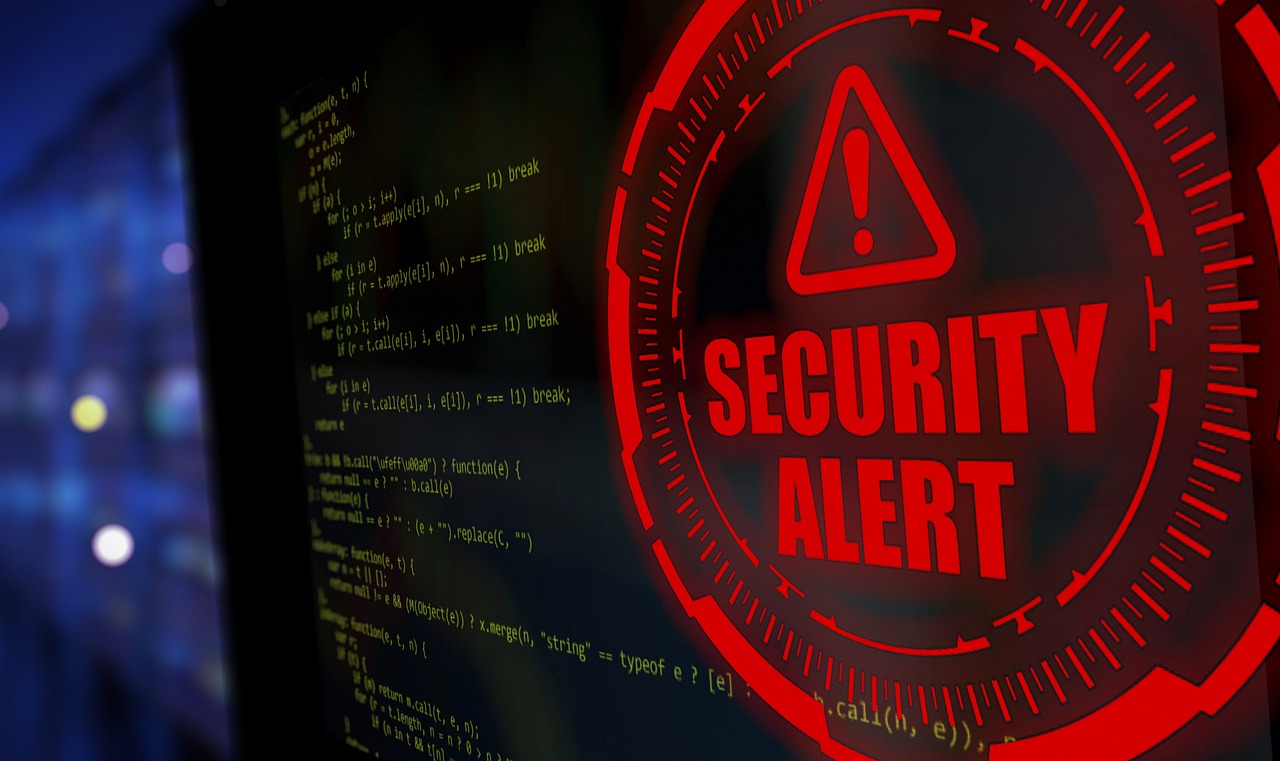
The Future of Emergency Preparedness
As we gaze into the crystal ball of emergency preparedness, one thing becomes crystal clear: millennials are not just the future; they are the present. With their unique blend of tech-savviness, social consciousness, and innovative thinking, this generation is poised to redefine how we approach crises. Imagine a world where emergency responses are not just reactive but proactive, where communities are interconnected through technology, and where every individual is equipped with the knowledge and tools to face disasters head-on.
Millennials, often labeled as the "digital generation," have the potential to transform emergency preparedness by harnessing the power of technology. They are already utilizing platforms like social media and mobile applications to share vital information and coordinate responses. In the future, we can expect to see even more sophisticated tools that leverage artificial intelligence and machine learning to predict emergencies and optimize responses. For instance, imagine an app that not only alerts you to a nearby natural disaster but also provides real-time updates on evacuation routes and available shelters.
Moreover, the importance of community engagement cannot be overstated. Millennials thrive on collaboration and are increasingly involved in local initiatives aimed at enhancing preparedness. They understand that during a crisis, the strength of a community can make a world of difference. By fostering networks of support, millennials can help ensure that resources are shared, and information flows freely among neighbors. This grassroots approach can lead to a more resilient society, one that is better equipped to handle unexpected challenges.
Education will also play a pivotal role in shaping the future of emergency preparedness. As millennials continue to seek out knowledge, we can anticipate a rise in training programs tailored specifically for them. These programs will not only focus on traditional emergency response techniques but will also incorporate modern technology, ensuring that participants are well-versed in the latest tools and strategies. Imagine workshops that combine hands-on training with virtual simulations, allowing participants to practice their skills in a safe environment.
In addition, online resources will continue to expand, providing millennials with easy access to information at their fingertips. Websites, webinars, and mobile apps dedicated to emergency preparedness will become essential tools for learning. As millennials increasingly rely on digital platforms for education, we can expect a surge in interactive content that engages users and encourages them to take action.
Ultimately, the future of emergency preparedness lies in the hands of millennials. Their ability to adapt, innovate, and collaborate will be crucial in developing strategies that not only respond to emergencies but also prevent them. By embracing their unique perspectives and leveraging their skills, we can create a future where communities are not just prepared but are thriving in the face of adversity. The question is, are we ready to support and empower this generation to lead the charge?
- What role do millennials play in emergency preparedness?
Millennials are leveraging technology and community engagement to enhance emergency preparedness efforts, making them crucial in shaping future strategies. - How can technology improve emergency response?
Technology can provide real-time updates, facilitate communication, and help predict emergencies, thereby enhancing response times and effectiveness. - Why is community engagement important in emergencies?
Community engagement fosters collaboration and resource sharing, which are essential for effective emergency response and recovery. - What educational resources are available for millennials?
There are numerous online platforms, workshops, and seminars designed to equip millennials with the skills needed for effective emergency preparedness.
Frequently Asked Questions
- Why is emergency preparedness important for millennials?
Emergency preparedness is crucial for everyone, including millennials, as it helps mitigate risks during disasters. Being prepared can save lives, reduce damage, and ensure a quicker recovery. Millennials, with their unique skills and tech-savvy nature, can significantly enhance these efforts.
- How can technology improve emergency preparedness?
Technology plays a vital role in emergency preparedness by facilitating communication and information sharing. Millennials, being digital natives, utilize various apps and platforms to relay real-time updates, coordinate community responses, and spread awareness during crises.
- What role does social media play in emergency situations?
Social media serves as a powerful tool for disseminating information during emergencies. Millennials leverage these platforms to quickly share updates, mobilize community resources, and ensure that vital information reaches those in need, enhancing overall public safety.
- How can millennials engage their communities in preparedness efforts?
Millennials often participate in community-driven initiatives that foster stronger networks for emergency preparedness. By organizing workshops, seminars, and local events, they can educate others and create a culture of readiness within their communities.
- What educational resources are available for millennials to enhance their preparedness skills?
There are numerous online resources, workshops, and seminars tailored for millennials that focus on emergency response and preparedness. These educational opportunities provide valuable information and practical skills that can be applied in real-life situations.
- What innovative solutions are millennials developing for emergency preparedness?
Millennials are known for their creativity and innovation, leading to the development of new solutions such as mobile apps and community programs that address specific preparedness needs. These innovations can streamline response efforts and improve overall resilience.
- How can millennials shape the future of emergency preparedness?
As millennials continue to engage in emergency preparedness, their unique perspectives and experiences can influence future strategies and policies. By advocating for change and leveraging technology, they can help create more effective and inclusive preparedness initiatives.



















